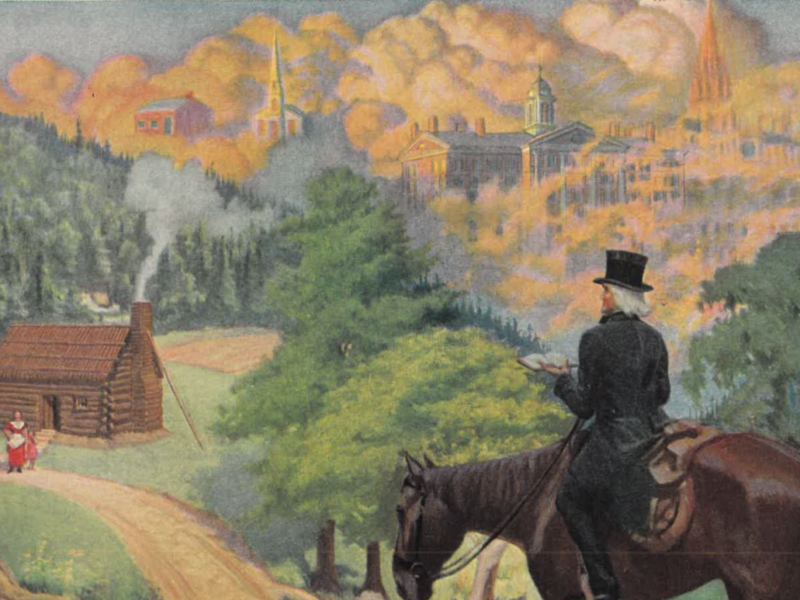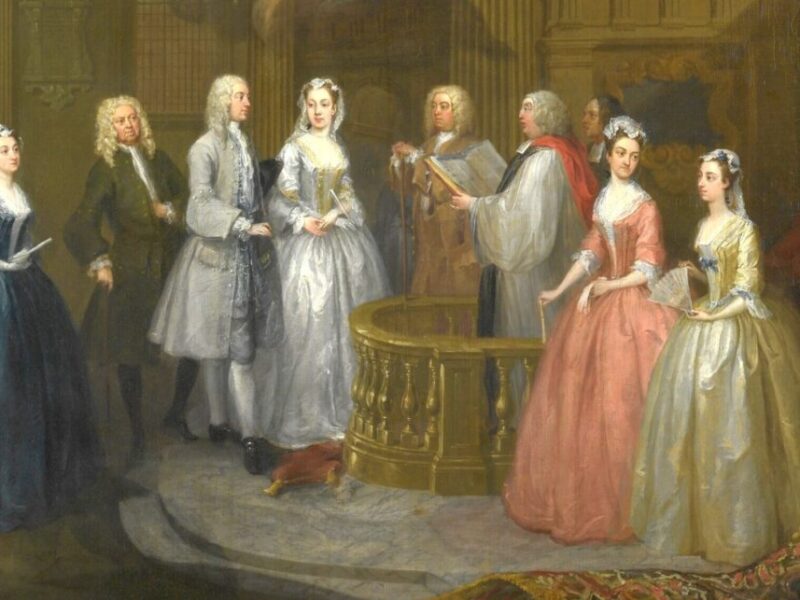- Come Thou Long Expected Jesus – The First Sunday in Advent
- Lo! He Comes with Clouds Descending – Second Sunday in Advent
- On Jordan’s Bank the Baptist Cries – Third Sunday in Advent
- O Come, O Come, Emmanuel – The Fourth Sunday in Advent
- What Child Is This? – Christmas Day
- Angels from the Realms of Glory – The Sunday after Christmas Day
- Joy & Wonders – The Feasts of Circumcision & Epiphany
- Nonconforming, Ever Transforming – The First Sunday after Epiphany
- Songs of Thankfulness and Praise – Second Sunday after Epiphany
- Hail to the Lord’s Anointed – The Third Sunday after Epiphany
- The Embodied Temple: Candlemas
- Kept by Christ – The Epiphany of True Religion – Fifth Sunday After the Epiphany
- Exiles on the Run – Septuagesima Sunday
- Firm Foundations – Sexagesima
- Given to Shriven: Quinquagesima
- Life, Love, & Lent: Ash Wednesday
- Forty Days, Forty Nights – First Sunday in Lent
- Just As I Am – The Second Sunday in Lent
- “Lightning” the Way – The Third Sunday of Lent
- The Comfort of Thy Grace – The Fourth Sunday in Lent
- O Love, How Deep – The Fifth Sunday in Lent
- When I Survey – The Sunday Next before Easter
- O Sacred Head, Embodied Sacrifice – Good Friday
- Questions – Easter Even (Holy Saturday)
- Hymn of Joy – Easter Day
- No Quarter – The First Sunday after Easter
- Shepherd of the Sheep – The Second Sunday after Easter
- Strangers and Pilgrims – The Third Sunday after Easter
- Every Perfect Gift – The Fourth Sunday after Easter
- Walk the Fields – Rogation Sunday
- Hail to the King – Ascension Day
- Leave Us Not Comfortless – The Sunday after Ascension Day
- Lighten Our Darkness – Whitsunday
- Keep Us Steadfast in This Faith – Trinity Sunday
- Nothing Ordinary About It – The First Sunday after Trinity
- The Confession – St. Peter’s Day
- The Joy Over One – The Third Sunday after Trinity
- Turn and Be Turned
- Worn, Not Out
- Deadbeat to Sin for Death is Beaten
- Nourishment – The Seventh Sunday After Trinity
- Profitable for Us
- Enabled: The Ninth Sunday After Trinity Sunday
- To Love That Word: St. Bartholomew’s Day
- Partakers of thy Heavenly Treasure – The Eleventh Sunday after Trinity
- More Ready to Hear Than We Are to Pray – The Twelfth Sunday after Trinity
- Laudable Service
- The Taxman
- Seek Ye First
- God Hath Visited His People
- Prevent Us & Follow Us
- Withstand
- Direct and Rule Our Hearts
- Knit Together
- Not as Fools
- Breaking Winter’s Silence
- Devoutly Given
- Jordan’s Shores
Joy to the world! the Lord is come:
Let earth receive her King;
Let ev’ry heart prepare Him room
And heav’n and nature sing,
And heav’n and nature sing,
And heav’n, and heaven and nature sing.
This is the season of Joy. The season continues in such a manner that it embarrasses both the world and the Western Church of modernity. The 1662 Book of Common Prayer recognizes January 1st not as New Year’s Day (for merry ole England did not move its new year from March 25th to January 1st until 1752) but as the Feast of the Circumcision of Christ.
“Ick,” cry out the world and modern churchmen, but for the traditional Christian, we pray in sync with the Litany: “By thy mystery of the holy incarnation; by thy holy nativity and circumcision; by thy baptism, fasting, and temptation, Good Lord, deliver us.” Yes, the circumcision of Christ is intrinsically tied to God’s incarnation. He experiences the same flesh-cutting that Hebrew males have experienced on the eighth day of their birth for centuries dating back to Father Abraham.
This is the enrollment of the Savior of His people, the new Moses, Jesus the Christ into the holy covenant of old. Here we see the Christ child, a mere eight-day-old, shedding His blood already for us and for our salvation. We sing “Joy to the world” because “the Lord is come” as priest, prophet, king, and our sacrifice. The Christ-child takes on the sign of God’s covenant with His people and God Himself – in the flesh of His chosen people – shall be the new Adam who can reverse the curse and bring life where death now reigns.
But death’s reign is cut short as Christ receives the cut upon His flesh. We pray each morning in mattins, “O God, make clean our hearts within us” and we receive the circumcision made without hands, the gift of the Spirit, in which we respond every mattins, “And take not thy Holy Spirit from us,” because Christ bore the marks of fleshly circumcision and lives to spiritually fulfill the law completely. Earth is receiving her King, but shall we prepare Him room as all creation sings?
Joy to the earth, the Savior reigns!
Let men their songs employ,
While fields and floods, rocks, hills, and plains
Repeat the sounding joy,
Repeat the sounding joy,
Repeat, repeat the sounding joy.
The Jewish Messiah is the Savior of Jews and Gentiles alike. Therefore, is it any wonder that our Lord was presented to His people first through undergoing circumcision and quickly followed by His manifestation – Epiphany – to the Gentile Magi? The Feast of the Circumcision is a pre-Epiphany of sorts for the chosen people. Hence the 1662 Book of Common Prayer instructs us to repeat the collect and readings until Epiphany because this Feast celebrating Jewish circumcision is a natural bridge to the Epiphany to the Gentiles.
Recent prayer books have walked away from the bloody necessity of the circumcision and muddled how this feast is part of the greater redemptive purpose of God by adding the moniker “and Holy Name of Our Lord Jesus Christ” to ease the blow of this feast. The 1928 Prayer Book begins meddling and muddying in this direction by replacing the original epistle lesson with another from Philippians, and by adding a “Second Sunday after Christmas” to avoid further highlighting the Circumcision of Christ the following Sunday.
However, the Circumcision reminds us that Christ has come to bring about the new creation. While the Lord God rested on the seventh day of creation, the promised eighth day brings us new creation. The Son of God was incarnated for this reason and circumcision was given unto us as a sign, a promise of new creation and union with the God who fulfills all righteousness for us. Therefore, we praise “Almighty God, who madest thy blessed Son to be circumcised and obedient to the law for man.” Do you hear those last two words? Jesus was circumcised so He may be obedient perfectly to the law for you, for me, for our salvation.
The fulfillment of the law means the reversing of the curse for both the Jews and the Gentiles. It enables us to throw down the chains of our slavery to the evil powers of this world and “put on Christ” as St. Paul exhorts. Therefore, we can now pray for the Lord to “Grant us the true circumcision of the Spirit, that, our hearts and all our members being mortified from all worldly and carnal lusts, we may in all things obey thy blessed will, through the same thy Son Jesus Christ our Lord. Amen.”
Amen indeed. The Son is obedient so that we may receive the grace-filled circumcision of the Holy Ghost. Dare I say there is a hint of Pentecost in the air bringing joy to the world? As the epistle lesson teaches, “For the promise, that he should be the heir of the world, was not to Abraham, or to his seed, through the law, but through the righteousness of faith.” (Romans 4:13). Therefore, we joyfully celebrate and adore the purchaser of our salvation and the redeemer of our sinfulness from the condemnation of sinning against the law and God. We celebrate today because our curse and the curses of the law are set free by the Christ child who bled and took on the law for our sakes.
No more let sins and sorrows grow,
Nor thorns infest the ground;
He comes to make His blessings flow
Far as the curse is found,
Far as the curse is found,
Far as, far as the curse is found.
The reverse of Adam’s curse stretches beyond the borders of Israel, or even Herod’s puppet-province. The Jewish shepherds receive good news through the heavenly chorus of the army of angels, and the Gentiles receive the guidance of a single star. Perhaps this star is a lone angel or maybe a natural heavenly phenomenon providentially placed by God to inform the Persian Magi that a king is born. Regardless, the announcement of the curse’s expiration date has been made not in secret but in the heavens itself for both Jew and Gentile to see and respond.
It’s deeply poetic that God tells (and sends!) the Magi to see the Christ child. These magi are mysterious, and little is told to us in Holy Scripture, except that they come from the East. Abraham came from the East on God’s promise and Abraham received the sign of circumcision because of his faith in God’s promise. These Magi hail from ancient Persia, in the direction and perhaps the same location as Israel’s ancient foe, Babylon. Ah, alas Babylon! The foe who conquered Israel and exiled God’s people now sends her Magi seeking Wisdom from on high. The conqueror now sends her wise men to seek the One who will conquer the curse and whose dominion shall have no end. Urban Babel is where the Gentile nations rebelled and presumptuously built a tower towards God; today we have Gentiles from Babel looking up at God’s heavens and humbly seeking God’s descent in rural Bethlehem.
These wise-men follow a light and find the light of the world at its end. They bring gifts, yet the greatest gift is “the young child with Mary his mother.” (Epiphany Gospel, Matthew 2:11, KJV). These great men from greater Babylon, “fell down, and worshipped him” the lowly babe in little Bethlehem. (Matthew 2:11, KJV). It is marvelous that the Gentile Magi are the first to bend the knee in worship in Matthew’s Gospel. Every morning, we are invited to join the Magi when we sing the Venite, “O come, let us worship and fall down, * and kneel before the LORD our Maker.” (Psalm 95:6, Coverdale Psalter).
He rules the world with truth and grace
And makes the nations prove
The glories of His righteousness
And wonders of His love,
And wonders of His love,
And wonders, wonders of His love.
The transfer from Christmas to Epiphanytide is one of wonders. God has descended to the earth as man and it is truly a wonder of His love. The wonder of God entering into the very covenant He gave Abraham, codified with Moses, and now fulfills in Himself through God the Son. His wonders expand to manifesting Himself, “to the Jew first, and also to the Greek.” (Romans 1:16, KJV). This is a season of wonders; let us respond in mercy, out of love, and in praise to the God of wonders, lovingkindness, and righteousness – a righteousness that He pours out on us sinners – not in wrath – but in love to raise us up from the tomb.
May we respond as the wise men once did and bring Him gifts from the very earth He hath made. May we see how even the weak gifts we bring are taken and used by God to glorify His wondrous love for us. In the case of the Magi, the gold, frankincense, and myrrh each point to the office that the Christ child was incarnated to be for us – Prophetic King, High Priest, and Spotless Sacrifice. Let us sing, We Three Kings and be reminded of their prophetic gifts:
Born a King on Bethlehem’s plain,
gold I bring to crown him again,
King forever, ceasing never,
over us all to reign.
Frankincense to offer have I;
incense owns a Deity nigh;
prayer and praising, voices raising,
worshiping God on high.
Myrrh is mine; its bitter perfume
breathes a life of gathering gloom;
sorrowing, sighing, bleeding, dying,
sealed in the stone-cold tomb.
Babel and her tower have fallen, but Christ is risen. Once, the Gentiles were beholden to the darkness of the evil one and his demonic domain, but now,
is this grace given, that I should preach among the Gentiles the unsearchable riches of Christ; and to make all men see what is the fellowship of the mystery, which from the beginning of the world hath been hid in God, who created all things by Jesus Christ: to the intent that now unto the principalities and powers in heavenly places might be known by the church the manifold wisdom of God, according to the eternal purpose which he purposed in Christ Jesus our Lord: in whom we have boldness and access with confidence by the faith of him.
(Epiphany Epistle lesson, Ephesians 3:8-12, KJV).
Let us attend to sharing the Gospel to Jew and Gentile alike, for God is making one people out the incarnated body of God the Son, “having abolished in His flesh the enmity, even the law of commandments contained in ordinances; for to make in Himself of twain one new man, so making peace.” (Ephesians 2:15, KJV).
Behold, “the Gentiles shall come to thy light, and kings to the brightness of thy rising,” (Isaiah 60:3, KJV) therefore let us proclaim joy to the world by singing as one body, one church, in our one faith, to our one Lord, through our one baptism:
Glorious now behold him arise;
King and God and sacrifice:
Alleluia, Alleluia,
sounds through the earth and skies.





'Joy & Wonders – The Feasts of Circumcision & Epiphany' has 1 comment
January 10, 2025 @ 5:51 am Gillian
Beautiful!
Grounded and soaring!
I love this newly discovered site!It is in J I Packer’s words on the Book of Common Prayer,
grounded,faithful and thankful.